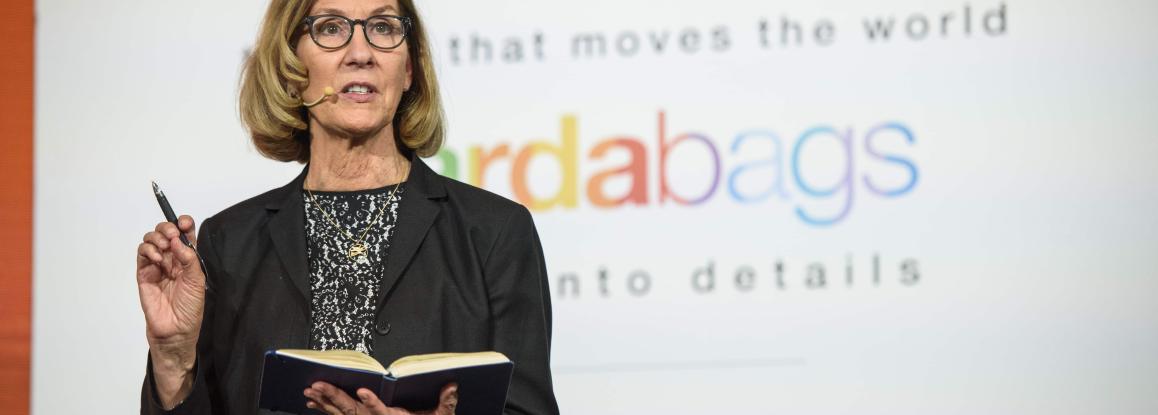For sustainability not to remain just a nice project but to become a reality, responsibility for the product life cycle must be shared by all actors in the supply chain, including consumers. We talked about this with Ellen Schmidt-Devlin.
The June 2022 edition of the Riva del Garda trade fair and the Expo Riva Show & Gardabags cycle of meetings and speeches had traceability as their primary focus, an indispensable element for companies' sustainability projects to materialise.
"Despite the fact that they seem like topics that have already been covered a lot, the concepts of sustainability and traceability are complex and not yet as widespread as they should be for a real transformation to take place in the fashion industry," says Ellen Schmidt-Devlin, part of the Expo Riva Schuh Scientific Committee as Sourcing Expert. And she adds: "That's why it's good to talk about it, especially during an event like Expo Riva Schuh which brings together exhibitors, buyers and distributors from all over the world and which, for this reason, is able to act as a sounding board for topics of global importance".
During the last edition, ten start-ups were selected and invited to the fair as part of the Innovation Village project. They brought their ideas on how to trace the impact companies have on the environment and how to find ways to bring value to producers, distributors and beyond to consumers. Traceability is a way for each product to preserve and tell its story: who produces it and with what raw materials, what is the path it takes from when it is created to when it ends up in the hands of consumers.
"We have to make sure that we make every consumer aware and responsible for their purchasing choices, informing them precisely about the origin of the products they buy," Ellen Schmidt-Devlin continues. "For sustainability and traceability to truly materialise, the responsibility for the life of the product must be embraced and shared by everyone in the value chain, so from producers, distributors and brands, all the way down to buyers."
Today, there are far too many ways of managing sustainability within companies. What is needed is more standardisation to help regulate, define and achieve common goals. Says Ellen Schmidt-Devlin: 'An event like the one in Riva del Garda can help set a standard and help the rest of the world move in one direction and overcome emerging problems in concert. For example, those of sourcing and shipping'.
In the first six months of the year, procurement and delivery have become major concerns for the supply chain. Rising costs have made it increasingly urgent for companies to find alternative strategies for managing their business processes. "The good thing is that, in order to overcome these problems, and to move towards simplified sourcing, they are increasingly developing an approach to use local raw materials”.
Unlike a few years ago, sustainability is no longer experienced by companies as a mere possibility, but rather as a duty, the principle according to which acting in favour of a green turnaround will be the discriminating value for companies wishing to remain competitive in the market. "Companies must prepare themselves now to be able to respond and meet the emerging needs in terms of sustainability," concludes Ellen Schmidt-Devlin.


